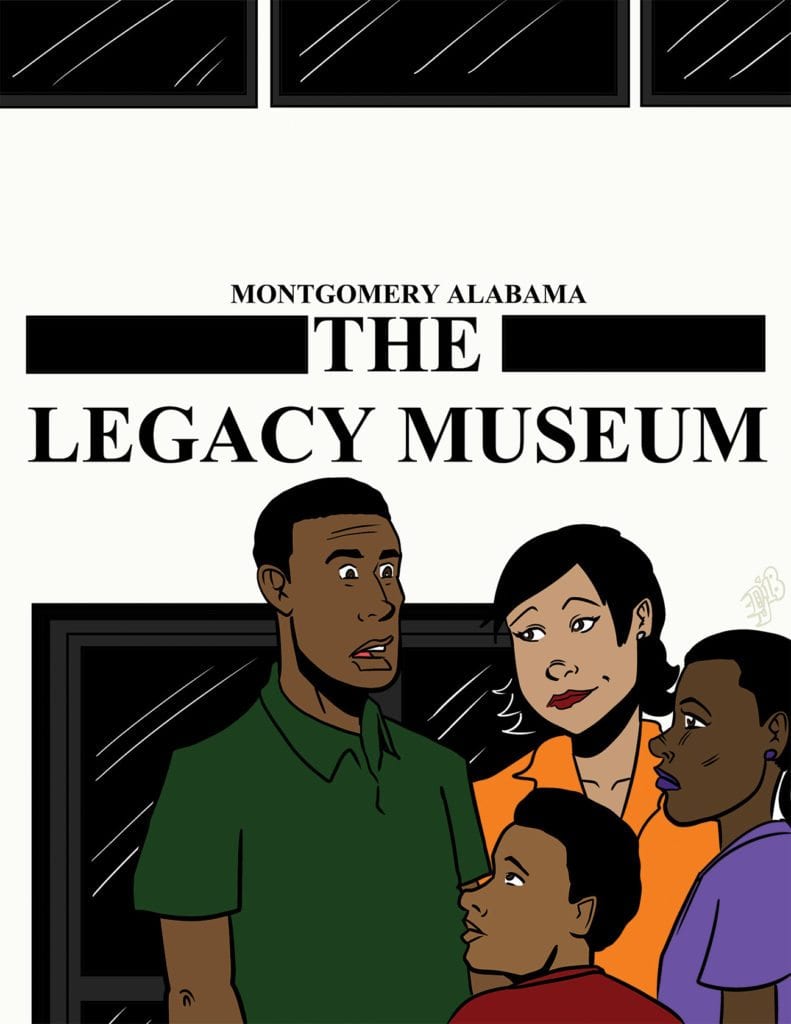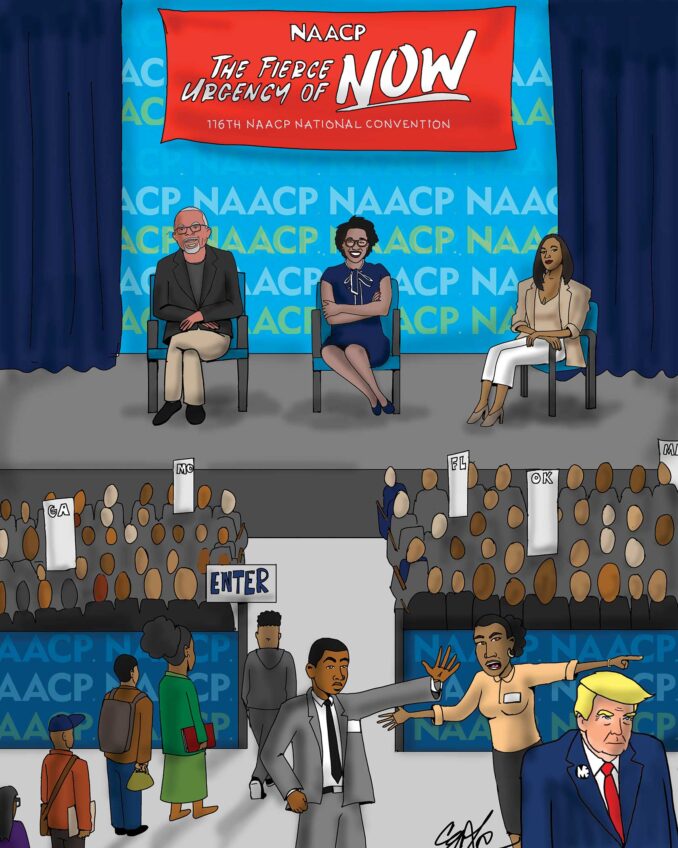
With ratification of the 13th Amendment to the Constitution in 1865, slavery became illegal in the United States, but the reign of racial terror was just about to begin. Until then, slaves were the property of the plantation owners, and it was impractical to damage or destroy one’s own property. But after emancipation, violence against blacks became a common strategy to subjugate them and to prevent their right to vote or to function as free citizens.
Bryan Stevenson, founder and president of the Equal Justice Initiative (EJI) in Montgomery, Alabama, with a team of lawyers and researchers, documented what he calls “racial terror lynchings” in the South. They were able to identify more than 4,400 African American lynching victims in the South from 1877 until 1950. The EJI established the Legacy Museum in Montgomery to preserve the record of America’s savage mistreatment of the nation’s citizens of African descent who were brought to America to serve as slaves.
Men, women and children were killed by the residents of white southern communities for such simple offenses as being rude to whites, failing to get off the sidewalk to permit a white person to pass, and walking behind the wife of a white man. An even more serious offense was to compete with a white-owned business.
A new National Memorial for Peace and Justice was conceived to commemorate all those who lost their lives in the nation’s savage lynchings during those 73 years. The names of the victims and the date they were lynched is stenciled on steel beams that are hung from the ceiling of the memorial’s structure. According to reports, the memorial, which is also located in Montgomery, was inspired by the Holocaust Museum in Berlin and the Apartheid Museum in Johannesburg.
Those guilty of lynching blacks escaped justice. Murder is a local offense, so prosecutors from southern states were able to refuse to indict. The NAACP and other civil rights activists tried without success to influence passage of a federal anti-lynching law.
It is clear that during the era of lynchings, black lives did not matter in the South. The callous shooting deaths of unarmed black men by the police, who rarely suffer prosecution for their conduct, seems like a continuation of racial terror lynchings. Is it any wonder that many African Americans believe today that black lives still do not matter to the police?






